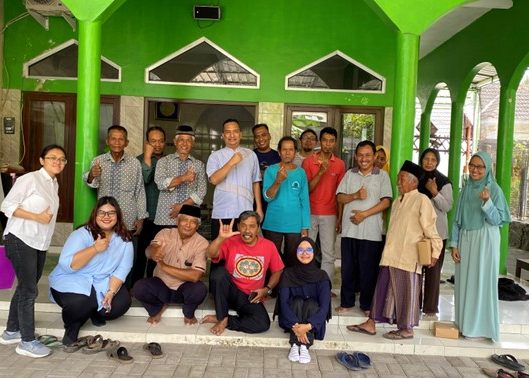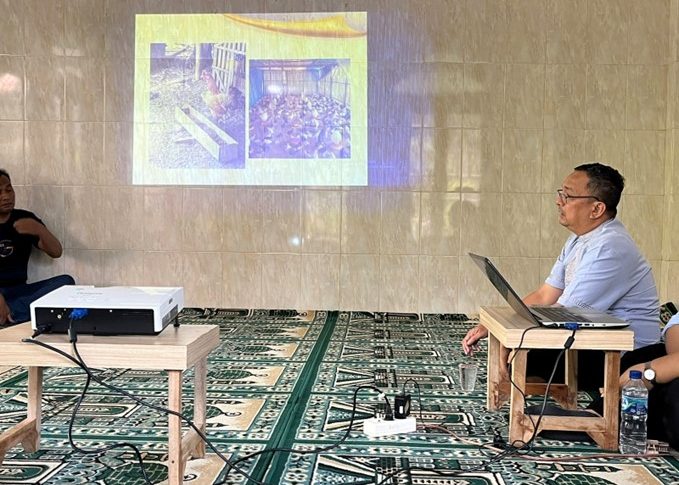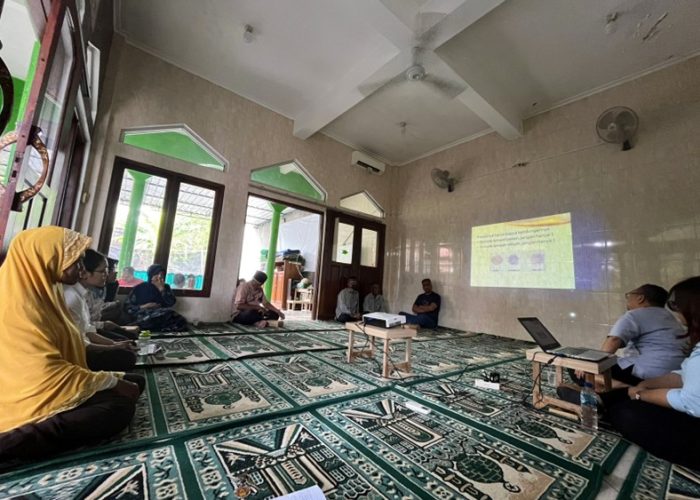On September 21, 2024, Dr. drh. Hendry Trisakti Saragih, M.P., from the Faculty of Biology, Universitas Gadjah Mada, delivered a presentation on the proper maintenance of maron chickens to the residents of Dusun Pajangan, Wedomartani, Ngemplak, Sleman, Yogyakarta. The event was opened with remarks from Dr. Ardaning Nuriliani, S.Si., M.Kes., who explained that the collaboration between the Faculty of Biology, UGM, and Dusun Pajangan has been ongoing since 2019 and also involves students from the Faculty of Biology, UGM. In 2024, the community service programs in Dusun Pajangan include the Desa Mitra and MBKM-PkM Programs. The RW 16 village head, Mr. Sumadi, expressed his support for the program, which is coordinated by Mr. Gunardi, S.Si., the head of the Takmir Masjid Jami’ Darussalam Pajangan.
During this event as one of the activity series of Desa Mitra Grand in Wedomartani Village, Dr. Hendry explained the management of maron chickens, including the ideal cage design and the production of simple feed utilizing organic waste from the surrounding environment. Maron chickens, a crossbreed between Arab hens and Lingnan roosters, grow faster than local chickens and begin laying eggs at the age of seven months. The potential of maron chickens to boost the local economy is significant, as their eggs resemble local chicken eggs and can be sold at a higher price.
The cultivation of maron chickens aligns with several Sustainable Development Goals (SDGs), including no. 1, no poverty, as maron chickens can lay eggs relatively quickly in large quantities and are highly marketable. It also supports no. 2, zero hunger, and no. 3, good health and well-being, as maron chicken eggs can be used to meet family nutritional needs. Moreover, this initiative contributes to SDG no. 12, responsible consumption and production, as the maintenance of maron chickens not only reduces organic waste but also produces manure useful for plants. The participants were highly engaged during the discussion, particularly about feed production and the idea of establishing a “chicken posyandu” for community care and oversight of chickens.




